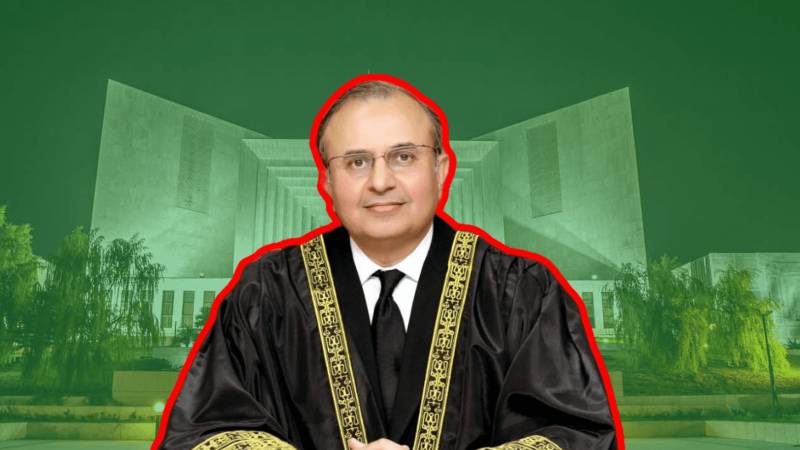
Supreme Court's Justice Mansoor Ali Shah has stressed that the accountability laws apply to generals and judges of the superior courts as much as they do to politicians.
Justice Shah said this as he disagreed with the professed opinion that members of the armed forces and judges are not accountable under the Anti-Corruption criminal law of the land. He had penned a dissenting note in the NAB law amendment case.
"This court in Asfandyar (case) observed that the non-applicability of the NAB Ordinance to the members of the Armed Forces and the judges of the Superior Courts is not discriminatory as they are held accountable under the Army Act 1952 and under Article 209 of the Constitution, respectively," he wrote.
"It appears that to secure the independence of these important national institutions, the court made this observation in the context that if a member of the Armed Forces or a judge of a Superior Court is alleged to have committed an offence of corruption and corrupt practices, he is at first to be proceeded against by his departmental authority; once he is found guilty of such offence by his departmental authority and is removed from his official position, only then can he be investigated and tried under the anti-corruption criminal laws of the land, i.e., the NAB Ordinance or the PCA as the case may be," he observed.
He further observed that his view was based on the tenet of equality before the law.
"If we do not read and understand the observations made by the court in Asfandyar (case) in this way, the legal position would be clearly hit by the basic constitutional value and the non-negotiable fundamental right of equality before law."
He further noted that officials holding other public offices, apart from facing civil consequences of their corruption and corrupt practices, suffer "criminal punishment of undergoing the sentence of imprisonment and the forfeiture of the unaccounted-for assets, while the members of the Armed Forces and the judges of the constitutional courts would go scot-free in this regard."
After removal from the official position, they would be set free to enjoy the assets accumulated by them through corrupt means, he further observed.
"Such reading and understanding of the observation of the Court would allow the members of the Armed Forces and the judges of the constitutional courts to be unjustly enriched and then allowed to retain this unlawful enrichment without any accountability; this would make the members of the Armed forces and the judges of the constitutional courts untouchable and above the law; any such reading would be reprehensible and revolting to the conscience of the people of Pakistan and bring the Court into serious disrepute," he argued.
"We must, therefore, strongly shun the above generally professed opinion and be clear that members of Armed Forces and the judges of the constitutional courts are fully liable under the NAB Ordinance, like any other public servant of Pakistan," stated Justice Mansoor Ali Shah.
On September 15, the top court, through a majority decision of two to one, ordered the restoration of corruption cases against public office holders that were withdrawn after amendments were made to Pakistan's accountability laws last year.
In his last action before stepping down as the Chief Justice of Pakistan, Umar Ata Bandial had issued a verdict against amendments to the NAB Law as the head of the three-judge bench hearing the case. Justice Mansoor Ali Shah dissented from the main judgment.
The top court's five-judge larger bench headed by Chief Justice Qazi Faez Isa is expected to take up the government's review petition against the main judgement on Tuesday for hearing. The other members of the bench include Justice Aminud Din, Justice Jamal Khan Mandokhail, Justice Athar Minallah and Justice Hassan Azhar Rizvi. Justice Shah is not part of the bench.
Most of the members of the bench have views on parliament's supremacy and its legislative competence.
Justice Shah, in his dissenting note, has said that Imran Khan's petition against NaB law amendments was heard over 50 dates of hearing.
He observed that during these prolonged hearings, a question was raised as to whether the judges of the constitutional court and the members of the Armed Forces enjoy exemption from the NAB Ordinance.
"I find that the generally
professed opinion that members of the Armed Forces and the judges of
the constitutional courts are not triable under the anti-corruption criminal laws of the land, requires some clarification," Justice Shah noted.

